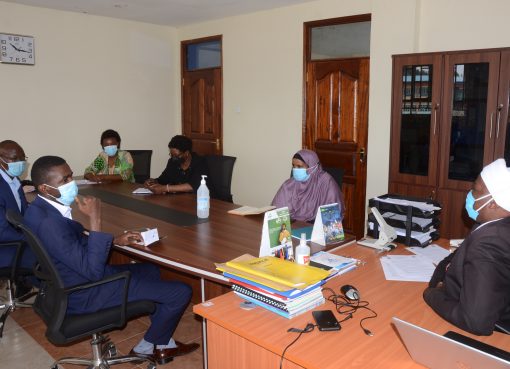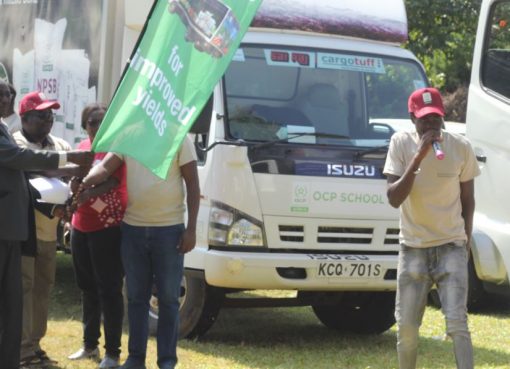Chris Bangles once said that cars are sculptures of everyday lives and in the recent past this has been taking shape. The automotive industry in Kenya has witnessed a drastic progression in local car sales owing to the directive by President Uhuru Kenyatta issued in 2019 urging all government ministries to buy locally assembled cars in an attempt to propel the agenda of ‘Buy Kenya Build Kenya’ initiative.
Under the Big 4 Economic Agenda led by President Kenyatta, the government last year set aside funds to purchase vehicles from local assemblers under the economic stimulus package. The automotive sector was among the eight (8) sectors selected for funding with Sh600 million budgeted.
Statistics from the Kenya Motor Industry Association (KMI) cites an upswing of 31.5 per cent to 10,044 unit’s sales in the last nine months in which Isuzu East Africa, Toyota Kenya and Simba Corporation jointly sold 7,637 units a year earlier with commercial vehicles taking the biggest percentage of the sales.
But as vital as controlling used-car imports is to nurturing a domestic industry, so is establishing a manufacturing base.
The government, which identified the auto sector as a key driver of the country’s industrialization policy had promised incentives to encourage the local industry by building special economic zones to benefit from tax holidays and low utility rates.
Kenya Vehicles Assemblers (KVA), Associated Vehicle Assemblers (AVA) and General Motors EA are some of the already existing car assembly zone offering this services.
“It is part of our government’s agenda to promote the philosophy of ‘Buy Kenya Build Kenya’ among our people, and all government entities,” stated President Uhuru Kenyatta.
Despite challenges ranging from imported used cars flooding the market, to the impact of Covid- 19 pandemic to the economy, the industry is still undeniably lucrative and set to sprout up across the continent.
Recently, Isuzu East Africa unveiled its 100000th vehicle to be assembled at its Nairobi plant since its inception in 1977.
Speaking at the launch, the Isuzu Managing Director, Rita Kavashe said that by the end of last year, the company was still leading as a local motor vehicle assembler with 45.4 percent of the total market.
Kavashe announced that Isuzu assembles and sells approximately 5000 units of assorted trucks, buses, pick-ups and SUVs annually, which is supported through an extensive dealer network across East Africa.
“In 2020, Isuzu East Africa sold 4,340 units driven by strong demand from Small and Medium Enterprise customers and the government’s Covid-19 economic incentive package,” she said.
The development of the automotive world involves many players spread all over the country and one of them being Autopax, who is shifting the narrative in the motor industry with their unique innovation set to revolutionise the industry. They are designing what is going to be one of Kenya’s first, efficient, affordable and sustainable electric vehicles called ‘Nguli’ – a Kamba dialect meaning brave, to be unveiled in November 2021.
Electric cars are entirely powered by electricity stored in a battery pack thus you don’t need to buy any gas ever again, they are also 100 percent eco-friendly and this will offer many Kenyans a great way to not only save money but also help contribute towards a healthy and stable environment.
This trend is proof that Kenya’s untapped demand combines with a steady increase in consumer spending which has been rising at an annual rate of 10 per cent over the last few years has led to more demand for sustainable vehicle assembly in the country.
“The industry has the lowest hanging fruit for economic development that needs to be guided for sustainability through regulations,” says renowned environmentalist Dr Isaac Kalua, Chairperson of the Motorcycle Assemblers Association of Kenya (MAAK) and Kenya Association of Manufacturers Motorcycle sub-sector.
Presently, the automotive sector employs an estimated 12,000 people of which 3,000 are directly employed in assembly plants, 3,690 in downstream spin offs and 5,782 in support sectors excluding dealerships.
Kalua emphasizes that in order for Kenya to achieve the dream for locally manufactured vehicles by stirring up the economy, all the players must come on board in order to make the industry tight knit noting that there are more opportunities to be trapped.
“The strength of the assembly comes with unity of assemblers. The market can accommodate everyone and is keen to offer jobs which Kenyans are searching for,” says Kalua.
Encouragingly, the assembly of motor vehicles in Kenya grew by 31.4 per cent from 2013 to 2014, with figures forecast to almost double between 2013 and 2019. This is improving the country’s chances of becoming a hub for assembly and production in the region.
The government has supported the sector by providing a favorable environment through which assemblers import the parts to be assembled in the country and also increasing capacity building by collaborating with TVET institutions.
The biggest barrier to new vehicle sales in Africa still remains cheap, second-hand cars from the US, Europe and Japan. The industry experiences tremendous competition from imported vehicles. This is according to the annual report by the National Automotive Policy 2020 where majority of Kenyans import about 85- 90 per cent of vehicles.
“Our biggest competitor is China who have an unfair cost competitiveness advantage, which inhibits the growth of local producers,” highlights Mr Ashit Shah, Chairman of the Automotive Parts Manufactures Association (APMA) and Kenya Automotive Manufacturers (KAM).
According to the Kenya National Bureau of Statistics (KNBS), the volume of imported vehicles between 2005 and 2017 grew at over 300 per cent from 33,000 to over 120,000 units.
Thus, one of the stimulus that led to the birth of Mobius Motors established to provide motorist with an option of low cost cars at about Sh1,100,000 (approximately US$11,000).
Mobius Motors, one of Kenyans established manufacturing plant in 2018, released their second model of their stripped- down SUV vehicle with the sole purpose of providing luxury, but robust driving experience targeting the diverse terrain areas.
Notably there are several benefits that comes with purchasing locally assembled cars. This includes loyalty programmes and the fact that one gets to own a brand new car with add on value packages that is locally accessible.
Many Kenyans however raise concern that the government ought to lower interest rates to enable easier access to car finance. “The availability of financing for new homegrown motor vehicles is virtually available but the interest rates are discouraging, more should be done” remarks Charles Odiero, a resident in Nairobi, Karen.
Motor Vehicle assembler’s calls on the government to speedy up the policy implementation process that will govern the growth of the industry and attract more investors in the automotive sector.
“The government ought to create regulations tailored towards friendly running of operations and to ensure the prosperity of the automotive sector,” says Anthony Musyoki, Manager Corporate Services & Company Secretary, Isuzu EA Ltd.
Though some cars might just be a four wheel structure with an engine but to others it’s a relationship they’ve cultured with their machines. The industry has the potential for economic liberation and just needs immense support from the various economic sectors, the government and the society in order to upscale car production in the country.
By Lydia Midani




